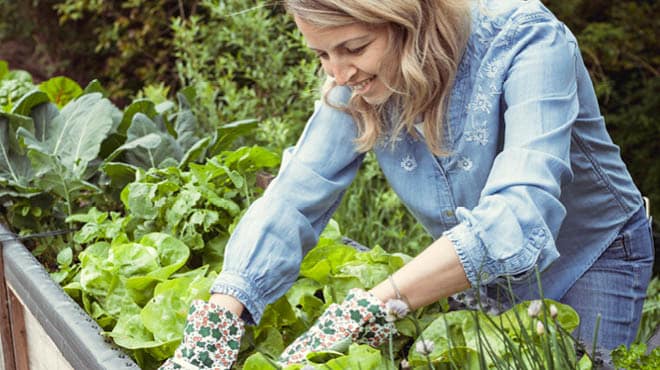Lasting Gardening Practices for an Eco-Friendly Yard
Lasting Gardening Practices for an Eco-Friendly Yard
Blog Article
Unlocking the Advantages of Horticulture: A Thorough Look at the Different Kinds and Their Influence On Wellness
Checking out the diverse benefits of gardening reveals a range of techniques that significantly enhance individual health. From veggie and herb gardens to container and raised bed setups, each type provides unique benefits that prolong beyond mere cultivation. These activities not only foster physical health and wellness with active involvement however likewise contribute to mental health by alleviating stress and motivating mindfulness. As we take a look at these diverse gardening strategies, it ends up being apparent that their impact can resonate on individual, social, and environmental degrees, triggering a closer look at just how these connections create a natural narrative of all natural health and wellness.
Sorts Of Gardening

Flower gardening, another preferred group, stresses the visual allure of grown flowers. This type can boost landscapes and advertise biodiversity by attracting valuable pollinators. In a similar way, herb horticulture involves growing aromatic and culinary plants, contributing both to food preparation and natural remedies.
Container gardening offers versatility, making it possible for individuals with restricted space to take part in gardening by making use of pots and planters. This method is specifically prominent in metropolitan settings. Raised bed gardening, on the other hand, includes creating elevated plots that boost dirt drain and ease of access, making it easier for garden enthusiasts to handle their plants.
Finally, area gardening promotes collaboration among people in common areas, advertising social interaction and collective duty. Each kind of horticulture serves distinct functions and provides to different preferences, making horticulture a functional task that can be customized to specific needs and atmospheres.
Mental Health Advantages
Participating in different sorts of horticulture not only yields concrete incentives such as fresh fruit and vegetables and beautiful flowers yet also uses significant psychological health benefits. Study shows that gardening can be a powerful device for reducing tension, stress and anxiety, and clinical depression. The act of tending to plants and cultivating a garden fosters a sense of function and success, which can boost total emotional wellness.
Moreover, gardening encourages mindfulness, as it requires individuals to focus on today moment, whether it be planting seeds or nurturing development. This mindfulness practice can lead to decreased rumination and enhanced state of mind security. The exposure to all-natural atmospheres during gardening has also been connected to boosted cognitive operating and lowered sensations of tiredness.
Social interaction plays a crucial role in mental wellness, and area horticulture efforts offer opportunities for people to attach with others, cultivating a sense of belonging. discover here The shared experience of horticulture can grow friendships and support networks, better strengthening emotional resilience.
Physical Health And Wellness Conveniences
Numerous people may not recognize that horticulture likewise provides considerable physical health and wellness advantages. Taking part in horticulture activities requires a variety of physical movements, including flexing, training, digging, and planting, which jointly contribute to improved stamina, adaptability, and endurance. These actions can improve cardiovascular health and wellness by promoting a raised heart price, therefore minimizing the threat of cardiovascular disease.
In addition, gardening can work as a moderate-intensity workout, helping people accomplish advised exercise levels. Research studies show that normal participation in gardening can melt substantial calories-- about 200-400 calories per hour, relying on the intensity of the tasks executed. Such calorie expense is useful for weight administration and general metabolic health and wellness.
In addition, direct exposure to sunshine throughout horticulture can promote the synthesis of vitamin D, which plays an essential role in preserving bone health and wellness and sustaining go to this site immune function. The act of gardening usually involves working with dirt, which has actually been linked to potential mental and physical wellness advantages due to the presence of advantageous microorganisms.
Social Links Via Horticulture
The communal aspects of gardening foster purposeful social links among individuals. Community yards, specifically, act as vibrant centers where people from diverse histories integrated, growing not only plants but additionally connections. These shared rooms motivate collaboration, permitting individuals to trade expertise, skills, and sources, thereby boosting their gardening experience and fostering a feeling of belonging.
Interaction in horticulture activities frequently brings about the formation of relationships and support networks. Individuals often unite for typical goals, such as planting periods, harvest celebrations, or academic workshops, which strengthen interpersonal connections and produce a sense of community. Such communications can minimize feelings of seclusion and boost mental wellness, as individuals find friendship and friendship in common ventures.

Environmental Influence of Horticulture
Gardening considerably adds to ecological sustainability in several ways. Among the most noteworthy benefits is the improvement of biodiversity. Home yards supply crucial habitats for various varieties, consisting of pollinators such as and butterflies, which are crucial for ecological community health and wellness. By growing diverse plant varieties, garden enthusiasts can produce a balanced atmosphere that supports both vegetation and fauna.

Additionally, yards play a crucial role in water conservation. Tactical landscapes, consisting of indigenous plants and xeriscaping, minimize water usage and avoid overflow, thus securing regional waterways from pollution.
Conclusion

Finally, gardening works as a complex task that enhances health throughout different domain names. The diverse kinds of gardening-- consisting of veggie, blossom, herb, container, and increased bed-- contribute to mental and physical health and wellness, foster social links, and advertise environmental sustainability. By engaging in horticulture techniques, individuals can experience enhanced lifestyle while additionally supporting neighborhood bonds and eco-friendly wellness. Ultimately, the alternative advantages of horticulture underscore its importance as an essential element in improving total well-being.
Report this page